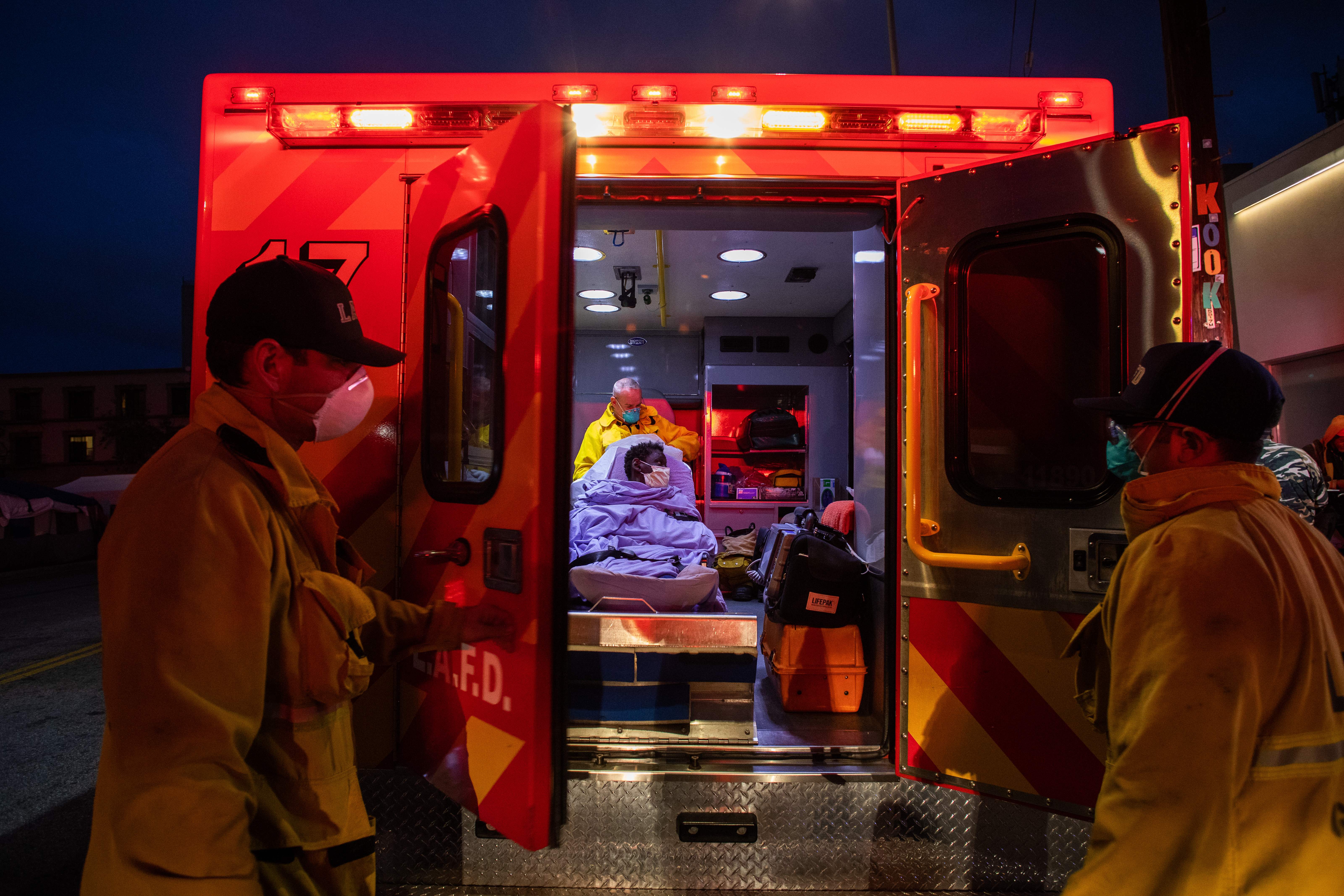Why Denmark beat COVID and the U.S. didn't
In a pandemic, trust in science and government is critical


A free daily email with the biggest news stories of the day – and the best features from TheWeek.com
You are now subscribed
Your newsletter sign-up was successful
This is the editor's letter in the current issue of The Week magazine.
Denmark is beating COVID. The Danish government recently announced the virus is no longer a "critical threat" there, and lifted its vaccination and mask requirements for indoor activities. Denmark's death toll per million citizens over the course of the pandemic is just 22 percent of the U.S.'s, and daily deaths there have fallen to under 10. Our deaths are again running at more than 2,000 a day. Why the huge difference? Trust. A survey by researchers Michael Bang Petersen and Alexander Bor found that more than 90 percent of Danes trust their national health authorities and public decision makers, The Washington Post reported this week. As a result, 86 percent of eligible Danes have been vaccinated. In the U.S., trust in expertise, government, the media, and institutions has collapsed. Vaccinations are lagging below 50 percent in many states, and we may add another 100,000 deaths this fall and winter to our grim total of 675,000. The pandemic still casts a deep shadow over our lives.
A society cannot function without a basic level of trust. The credibility void is filled with disinformation, conspiracy theories, cynicism, division, and resentment. The effects are plain to see: In Washington, consensus is dead and compromise virtually impossible. Trust in elections, the foundation of democracy, is eroding like a beach in a hurricane. In the face of all evidence, tens of millions of Americans continue to believe that the 2020 election was stolen, and that rigorously tested, lifesaving vaccines already administered to more than 200 million Americans — and billions worldwide — are dangerous and "experimental." People shun a simple shot largely because they see it as a form of surrender. In red states, the unvaccinated are flooding overwhelmed hospitals; Idaho has adopted "crisis standards of care," authorizing burned-out staff to ration beds to those most likely to survive. Meanwhile, in Denmark, crowds are flocking to concerts and bars to celebrate their freedom. Divided, we fall.
The Week
Escape your echo chamber. Get the facts behind the news, plus analysis from multiple perspectives.

Sign up for The Week's Free Newsletters
From our morning news briefing to a weekly Good News Newsletter, get the best of The Week delivered directly to your inbox.
From our morning news briefing to a weekly Good News Newsletter, get the best of The Week delivered directly to your inbox.
A free daily email with the biggest news stories of the day – and the best features from TheWeek.com
William Falk is editor-in-chief of The Week, and has held that role since the magazine's first issue in 2001. He has previously been a reporter, columnist, and editor at the Gannett Westchester Newspapers and at Newsday, where he was part of two reporting teams that won Pulitzer Prizes.
-
 How the FCC’s ‘equal time’ rule works
How the FCC’s ‘equal time’ rule worksIn the Spotlight The law is at the heart of the Colbert-CBS conflict
-
 What is the endgame in the DHS shutdown?
What is the endgame in the DHS shutdown?Today’s Big Question Democrats want to rein in ICE’s immigration crackdown
-
 ‘Poor time management isn’t just an inconvenience’
‘Poor time management isn’t just an inconvenience’Instant Opinion Opinion, comment and editorials of the day
-
 A Nipah virus outbreak in India has brought back Covid-era surveillance
A Nipah virus outbreak in India has brought back Covid-era surveillanceUnder the radar The disease can spread through animals and humans
-
 Covid-19 mRNA vaccines could help fight cancer
Covid-19 mRNA vaccines could help fight cancerUnder the radar They boost the immune system
-
 The new Stratus Covid strain – and why it’s on the rise
The new Stratus Covid strain – and why it’s on the riseThe Explainer ‘No evidence’ new variant is more dangerous or that vaccines won’t work against it, say UK health experts
-
 RFK Jr. vaccine panel advises restricting MMRV shot
RFK Jr. vaccine panel advises restricting MMRV shotSpeed Read The committee voted to restrict access to a childhood vaccine against chickenpox
-
 RFK Jr. scraps Covid shots for pregnant women, kids
RFK Jr. scraps Covid shots for pregnant women, kidsSpeed Read The Health Secretary announced a policy change without informing CDC officials
-
 New FDA chiefs limit Covid-19 shots to elderly, sick
New FDA chiefs limit Covid-19 shots to elderly, sickspeed read The FDA set stricter approval standards for booster shots
-
 RFK Jr.: A new plan for sabotaging vaccines
RFK Jr.: A new plan for sabotaging vaccinesFeature The Health Secretary announced changes to vaccine testing and asks Americans to 'do your own research'
-
 Five years on: How Covid changed everything
Five years on: How Covid changed everythingFeature We seem to have collectively forgotten Covid’s horrors, but they have completely reshaped politics
